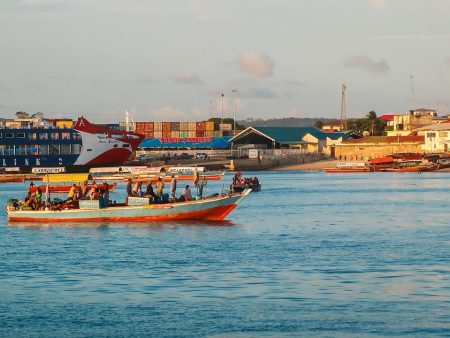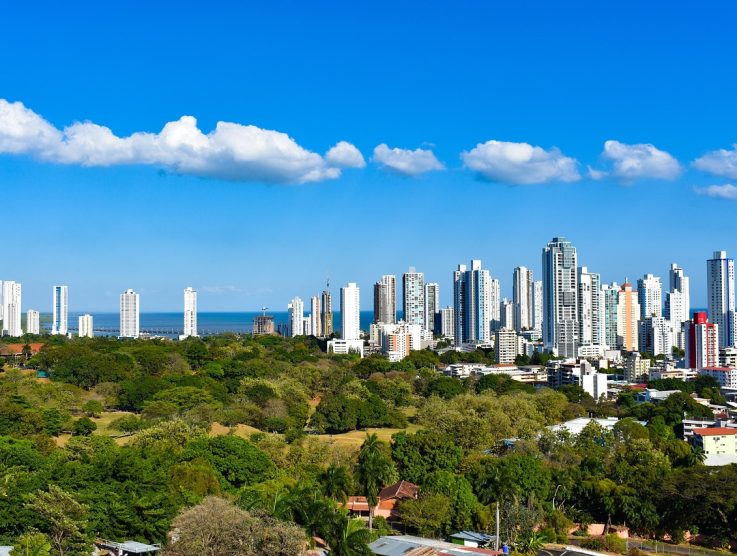Imagine waking up to the vast steppes and endless blue skies of Mongolia, where tradition meets modernity. Teaching English in this unique country offers not just a job but an adventure that immerses you in a rich culture and diverse landscapes. Whether you’re in bustling Ulaanbaatar or a remote village, you’ll find that Mongolian students are eager to learn and share their own stories.
Your role
Imagine waking up to the vast steppes and endless blue skies of Mongolia, where tradition meets modernity. Teaching English in this unique country offers not just a job but an adventure that immerses you in a rich culture and diverse landscapes. Whether you’re in bustling Ulaanbaatar or a remote village, you’ll find that Mongolian students are eager to learn and share their own stories.
Your role as an English teacher in Mongolia goes beyond the classroom. You’ll become a bridge between cultures, fostering mutual understanding and lifelong friendships. From exploring ancient monasteries to experiencing the nomadic lifestyle, teaching English in Mongolia promises an enriching journey that broadens your horizons and those of your students.
Why Teach English In Mongolia
Teaching English in Mongolia provides a unique blend of cultural experiences and professional opportunities. It offers the chance to explore a country rich in history and tradition while contributing to the educational growth of its people.
Cultural Immersion
Engage deeply with Mongolian culture by living and working in a society where tradition and modernity coexist. Urban areas like Ulaanbaatar offer exposure to contemporary Mongolian life, whereas rural placements allow for experiences with nomadic lifestyles and traditional customs. Participating in local festivals, learning the Mongolian language, and enjoying authentic cuisine enrich your cultural understanding and personal growth.
Professional Growth
Teaching English in Mongolia can enhance your professional skills and open doors to global opportunities. Many schools and institutions may require a bachelor’s degree, though specific subjects might not be necessary. A TEFL certificate, preferably of at least 120 hours, often fulfills the prerequisite for teaching positions. International experience on your resume boosts your marketability, demonstrating adaptability, communication skills, and a global mindset.
Making A Difference
Significantly impact Mongolian students’ lives by improving their English proficiency, which is crucial for their future educational and career prospects. By serving as both a teacher and a cultural ambassador, build relationships that promote cross-cultural understanding and foster long-term friendships. Your presence in the classroom helps bridge educational gaps and inspires students to pursue broader horizons.
Minimum Requirements
Most teaching positions in Mongolia require a bachelor’s degree in any field, a TEFL certificate of at least 120 hours, and sometimes prior teaching experience. While a background in education can be beneficial, it is not always mandatory.
Earning Potential
The earning potential for teaching English in Mongolia varies by institution and location. On average, expect to earn between $500 to $1,000 per month. This salary often includes benefits such as housing allowances, which make it sufficient to live comfortably given the lower cost of living in Mongolia.
Finding Opportunities
Most opportunities to teach English in Mongolia can be found through online job boards, international teaching agencies, and educational exchange programs. Websites like GoAbroad, TEFL.com, and Dave’s ESL Cafe frequently list positions in Mongolia. Networking with other expatriate teachers and local educational institutions can also help uncover available opportunities.
Embark on a rewarding journey by teaching English in Mongolia, experiencing rich cultural immersion, significant professional growth, and the chance to make a lasting difference.
Preparing To Teach English In Mongolia
Embarking on your journey to teach English in Mongolia involves several key steps and considerations.
Required Qualifications
Qualifying to teach English in Mongolia usually demands a bachelor’s degree in any field. Most positions also expect a TEFL (Teaching English as a Foreign Language) certificate with a minimum of 120 hours of training. While some jobs require prior teaching experience, many are open to first-time teachers who demonstrate enthusiasm and commitment.
Securing A Teaching Position
Finding a teaching position in Mongolia involves searching through various job portals and organizations specializing in ESL (English as a Second Language) placements. Websites like Teach Away, Dave’s ESL Cafe, and Go Overseas regularly list opportunities. Networking with current and past teachers in Mongolia through social media groups and forums can provide valuable insights and leads.
Visa and Work Permit Requirements
Teaching in Mongolia requires navigating the visa and work permit process. After securing a job offer, the hiring school typically assists with the visa application. You’ll need to provide documentation including your passport, degree, and TEFL certificate. Ensure to check the latest requirements from the Mongolian embassy or consulate in your home country as they may vary.
Materials And Resources
Equipping yourself with the right materials and resources is essential for teaching English in Mongolia. This section guides you on what to bring and utilize for an effective teaching experience.
Recommended Teaching Materials
Prioritize TEFL/TESOL books. Titles like “How to Teach English” by Jeremy Harmer and “Teaching English as a Foreign Language for Dummies” provide essential teaching methodologies and strategies. Incorporate interactive learning aids including flashcards, educational posters, and visual materials to facilitate understanding, especially for younger learners. Use online resources such as British Council’s teaching materials and websites like ESL Library and Canva which offer printable worksheets and lesson plans tailored for diverse proficiency levels.
Classroom Supplies
When preparing for the classroom, consider basic supplies easily found in Mongolia but may vary in quality. These include whiteboard markers and erasers for interactive teaching; notebooks and writing utensils for students’ note-taking; and audio-visual aids like speakers or projectors to enhance lessons through multimedia content. Additionally, ensure access to reliable internet for incorporating online learning platforms. Materials like sticky notes, highlighters, and binders might be useful for organizing lesson plans and student work.
Minimum Requirements
To qualify for teaching positions, candidates typically require a bachelor’s degree in any field. Although not always mandatory, experience in teaching or related fields is highly beneficial. A TEFL certificate (Teaching English as a Foreign Language) of at least 120 hours is widely accepted.
Salary Expectations
Teachers can expect to earn between $800 to $1,500 USD per month. Salary varies based on experience, the institution, and location. Urban centers like Ulaanbaatar tend to offer higher salaries compared to rural areas.
Finding Teaching Opportunities
Explore job portals such as ESL Cafe, Teach Away, and GoAbroad for listings. Networking through social media groups and connecting with current or past teachers in Mongolia can also provide leads. Many employers provide assistance with visa applications and work permits.
Arrival And Settling In
Arriving in Mongolia marks the beginning of your teaching adventure. Proper preparation helps ensure a smooth transition into your new life.
Finding Accommodation
Secure accommodation before arrival to avoid any initial inconvenience. Many schools offer housing or assist in finding local apartments. Popular options include shared apartments and guesthouses for short-term stays. Websites like Airbnb and Booking.com are useful for initial searches.
Understanding The Local Culture
Mongolian culture is rich and deeply rooted in traditions. Engage with locals to understand customs and etiquette. Participate in local festivals like Naadam, learn basic Mongolian phrases, and try traditional dishes such as buuz (steamed dumplings). Respect for elders and strong family values are key cultural aspects.
Tips For Adjusting To Life In Mongolia
Adjusting to life in Mongolia involves understanding climate, lifestyle, and transportation. Mongolia experiences extreme weather, so pack appropriate clothing for both hot summers and harsh winters. Familiarize yourself with local transportation options, including buses and taxis, as private cars are less common. Embrace the nomadic lifestyle and take part in community activities to build relationships and ease cultural transition.
Minimum Requirements And Qualifications
To teach English in Mongolia, possess at least a bachelor’s degree. A TEFL certificate is also typically required, with most schools preferring certifications from accredited institutions. Teaching experience enhances your prospects, though some schools accept novice teachers.
Salary Expectations
Earning potential for English teachers in Mongolia ranges from $800 to $1,500 USD per month. Salary depends on factors like experience, qualifications, and location, with urban areas like Ulaanbaatar offering higher pay.
Finding Teaching Opportunities
Job portals such as Dave’s ESL Cafe, TEFL.com, and GoAbroad are excellent resources for finding teaching positions. Networking with current and past teachers via forums or social media groups also uncovers opportunities. Many employers assist with visa and work permit applications, ensuring legal and smooth entry.
Gearing up with accurate information and preparation ensures a rewarding teaching experience in Mongolia.
Teaching Techniques And Strategies
Teaching English in Mongolia offers a unique and enriching experience. Effective methods and strategies ensure successful lessons and meaningful connections with students.
Effective Teaching Methods
Adapt various teaching techniques to meet student needs. Use Communicative Language Teaching (CLT) to promote speaking and listening skills. Engage students in real-life communication tasks like role-playing and group discussions. Apply Task-Based Learning (TBL) to focus on completing specific tasks, fostering practical language use. Interactive activities such as games and multimedia resources keep students engaged and motivated.
Classroom Management Tips
Establish clear rules and expectations from the beginning. Develop a routine to create a structured environment. Use positive reinforcement to encourage desired behaviors. Implement diverse strategies to maintain interest, such as varying activity types and incorporating breaks. Be mindful of cultural differences; showing respect and understanding local customs enhance cooperation and mutual respect.
Incorporating Mongolian Culture Into Lessons
Integrate local culture to make lessons relevant and engaging. Use Mongolian history and traditions as content for reading and discussion activities. Incorporate Mongolian holidays like Tsagaan Sar and Naadam to teach vocabulary and relevant phrases. Encourage students to share personal stories and cultural insights, fostering a multicultural learning environment. Utilize local materials such as Mongolian literature and folk tales to enrich the curriculum.
Minimum Requirements And Earnings
A bachelor’s degree and a TEFL certificate are typically required to teach English in Mongolia. Some positions may also require prior teaching experience, though this varies by employer. Recognized TEFL certificates include CELTA and TESOL. Typical monthly earnings range from $800 to $1,500 USD, depending on experience and location.
Finding Teaching Opportunities
Job portals such as TeachAway and Dave’s ESL Cafe list teaching positions in Mongolia. Networking with current and past teachers can also provide valuable leads. Many schools assist with visa applications and work permits, easing the transition to this rewarding role.
Common Challenges And Solutions
Teaching English in Mongolia offers a unique experience, yet it comes with its set of challenges. Understanding these and implementing effective solutions can greatly enhance your teaching journey.
Language Barrier
Challenge: Communication with students and locals becomes difficult when you don’t share a common language.
Solution: Gain basic proficiency in Mongolian before arrival. Use visual aids, gestures, and translation apps during lessons. Incorporate Mongolian cultural references and vocabulary to bridge understanding gaps.
Resource Limitations
Challenge: Schools may lack sufficient teaching materials, technology, and infrastructure.
Solution: Prepare to be resourceful. Bring your own teaching aids and leverage digital resources. Collaborate with local teachers to create shared materials. Adapt lesson plans to utilize readily available resources.
Student Engagement
Challenge: Keeping students motivated and engaged, especially with varying English proficiency levels, is challenging.
Solution: Apply interactive teaching methods like Communicative Language Teaching (CLT) and Task-Based Learning (TBL). Integrate games, group activities, and cultural topics into lessons. Tailor your approach to meet individual students’ needs and interests.
Minimum Requirements And Compensation
Teaching positions in Mongolia typically require a bachelor’s degree and a TEFL certificate. Experience is beneficial but not mandatory. The TEFL certificate should be from a recognized institution, often requiring at least 120 hours of coursework.
Earnings: Expect to earn between $800 and $1,500 USD monthly, depending on experience and location.
Finding Opportunities
Job Portals: Websites such as Dave’s ESL Cafe, TEFL.com, and ESL Employment are popular for finding teaching opportunities.
Networking: Engage with current and former English teachers through forums and social media groups to learn about openings and gather advice.
Schools And Agencies: Apply directly to schools and through recruitment agencies that specialize in placing teachers in Mongolia.
Continually prepare and adapt to these common challenges to ensure a rewarding teaching experience in Mongolia.
Getting Involved In The Community
Extracurricular Activities
Engaging in extracurricular activities provides an excellent opportunity to connect with students and the local community. Many schools offer clubs and sports teams in which teachers can participate. For example, joining a local language exchange club helps improve your Mongolian language skills while allowing students to practice their English. Consider participating in traditional Mongolian sports like wrestling, archery, or horse riding to gain a deeper appreciation of the culture.
Volunteering Opportunities
Volunteering allows for meaningful community involvement while enhancing your teaching experience. Numerous organizations seek volunteers for various projects, such as teaching English to underprivileged children or participating in community development initiatives. For instance, organizations like Voluntary Service Overseas (VSO) and local NGOs provide platforms to volunteer your time and skills.
Minimum Requirements
Teaching English in Mongolia typically requires a bachelor’s degree and a TEFL certificate. Many positions necessitate a TEFL certificate with at least 120 hours of instruction. Some schools prefer candidates with teaching experience, but this is not always mandatory.
Salary Expectations
Teachers in Mongolia can expect to earn between $800 and $1,500 USD per month, depending on experience and the location of the school. Urban areas like Ulaanbaatar generally offer higher salaries compared to rural regions.
Finding Opportunities
Job portals such as TeachAway, GoAbroad, and Dave’s ESL Cafe commonly list teaching positions in Mongolia. Networking with current and past teachers also provides valuable insights and potential job leads. Many employers assist with visa applications and work permits, simplifying the transition process.
Engaging in these activities and meeting the outlined requirements will enrich your experience and allow for a rewarding teaching journey in Mongolia.
Tips For A Successful Teaching Experience
Quality teaching thrives on preparation, cultural awareness, and professional growth. Use the following tips to enhance your experience teaching English in Mongolia.
Building Relationships With Students
Cultivate trust and respect to build meaningful relationships with your students. Engage actively; use students’ names and show genuine interest in their lives. Tailor lessons to include local contexts, making content relatable and engaging. Encourage open communication by creating a safe space for students to express themselves.
Continuous Professional Development
Stay updated with the latest teaching methodologies. Attend workshops, join online courses, and participate in teaching conferences. Engaging in continuous learning enhances your teaching skills and keeps you motivated. Consider online platforms like Coursera and TEFL-specific websites like BridgeTEFL.
Self-care And Well-being
Maintaining personal well-being is essential for effective teaching. Integrate physical activities, such as hiking or joining local sports clubs, into your routine. Cultivate a support network by connecting with fellow expatriates and locals. Practice mindfulness and set aside time for hobbies to ensure a healthy work-life balance.
Conclusion
Teaching English in Mongolia offers a unique blend of professional and personal growth. You’ll find yourself not just imparting knowledge but also becoming a vital part of a vibrant culture. The experience will enrich your life, providing invaluable insights and lasting memories.
By preparing thoroughly and immersing yourself in the local culture, you’ll maximize the rewards of this adventure. Engaging with students and the community will deepen your understanding and foster meaningful connections. This journey is more than a job; it’s a transformative experience that will shape your future in countless positive ways.
Frequently Asked Questions
What qualifications do I need to teach English in Mongolia?
To teach English in Mongolia, you typically need a bachelor’s degree and a TEFL certificate. Some schools may have additional requirements, but these two qualifications are generally essential.
Can I teach English in both urban and rural areas of Mongolia?
Yes, you can teach English in both urban areas, like Ulaanbaatar, and in rural regions. Each setting offers unique cultural experiences and teaching opportunities.
How do I find a teaching job in Mongolia?
You can find teaching jobs in Mongolia through various job portals, networking with current and past teachers, and contacting schools directly. Many schools also help with visa applications.
What is the salary range for teaching English in Mongolia?
The salary range for teaching English in Mongolia is typically between $800 to $1,500 USD per month, depending on experience and location.
What is the cost of living in Mongolia for a teacher?
The cost of living in Mongolia is relatively low compared to Western countries. Accommodation, especially in rural areas, is usually more affordable, and many schools offer housing assistance.
How do I get a visa to teach in Mongolia?
The hiring school generally assists with the visa application process. It’s essential to verify the latest requirements from the Mongolian embassy or consulate before applying.
What is the teaching environment like in Mongolia?
Teaching environments can vary, but generally, Mongolian students are eager to learn. Small class sizes and an emphasis on English proficiency are common, providing a focused teaching environment.
Are there opportunities for professional growth while teaching in Mongolia?
Yes, teaching in Mongolia can enhance your professional skills and marketability. Engaging in workshops, online courses, and continuous learning can contribute to your professional development.
How can I prepare for living in Mongolia?
Preparing for life in Mongolia involves understanding local customs, securing accommodation, and adjusting to the extreme climate. Engaging with locals and participating in cultural activities can ease your transition.
What teaching techniques are effective in Mongolia?
Effective teaching techniques in Mongolia include Communicative Language Teaching (CLT) and Task-Based Learning (TBL). These methods can help enhance student engagement and learning outcomes.
What challenges might I face when teaching in Mongolia?
Common challenges include language barriers, resource limitations, and student engagement issues. Learning basic Mongolian, being resourceful, and using interactive teaching methods can help overcome these challenges.
How can I get involved in the local community?
You can get involved in the local community by joining clubs, sports teams, or volunteering for local initiatives. This helps build relationships and enhances your cultural understanding.
What tips do you have for adjusting to life in Mongolia?
To adjust to life in Mongolia, prepare for the climate, familiarize yourself with local transportation, and engage with the community. Understanding local customs and participating in traditional festivals can also help.
How important is self-care while teaching in Mongolia?
Self-care is crucial while teaching in Mongolia. Engaging in physical activities, mindfulness practices, and establishing a support network can help maintain a healthy work-life balance.














